How is the life of a person who runs a NGO for rescue of psychologically impacted street dwellers?
The life of a person who runs an NGO dedicated to rescuing psychologically impacted street dwellers can be both challenging and fulfilling. It requires immense dedication, empathy, and a strong commitment to making a difference in the lives of those who are vulnerable and marginalized.
During my all India cycle tour, I had the privilege of meeting Mr. Ravi Bodake, a sociology graduate who has been running the Yashodhan Trust, an NGO dedicated to rescuing psychologically impacted street dwellers, for the past 17 years. Mr. Ravi shared with me the incredible work they have been doing, with over 700 individuals being rehabilitated and successfully reintegrated into their respective homes. He proudly mentioned that they have achieved a 100% recovery rate among these patients found on the streets of Maharashtra.
Mr. Ravi’s commitment to these individuals was truly inspiring. He emphasized that even after recovering 100%, many of them would not remember their names or families, but he promised to continue caring for them as long as he lives. The center I visited felt like a mental asylum, with a significant number of severely impacted individuals seeking rehabilitation. At the time of my visit, there were 85 people undergoing rehabilitation at the center.
Having never been to a psychiatric ward or encountered mentally ill individuals before, I was filled with curiosity about the process of their rehabilitation and their eventual return to their homes. However, what intrigued me even more was the life of Mr. Ravi Bodake himself and his unwavering dedication to this important social work.
yashodhan Trust (https://instagram.com/ravi.bodake?igshid=MmJiY2I4NDBkZg==)
Table of Contents
ToggleThe organization
Yashodhan Trust was established in 2005 by Mr. Ravi Bodake, who is not only involved in social work but also works as a share market broker, farmer, and motivational speaker. He passionately allocates 50% of his income towards the organization’s activities.
Initially, Mr. Ravi faced challenges in his personal life due to societal perceptions about his work with mentally ill individuals. However, a mother approached him, expressing her trust in his ability to care for her daughter even in her worst times. This led to their marriage, which was a simple registered ceremony. The wedding gift of 50,000 rupees from attendees was wisely invested in his wife’s name, eventually growing to 1 lakh rupees. With this, they purchased their own land, as the organization had been operating from a rented space.
To further support the organization’s growth, a 100-gram gold gift from his wife’s mother was sold, along with selling 1 acre of Mr. Ravi’s father’s land. His wife actively participates in the organization’s work and has been trained to handle the needs of the individuals they serve.
Currently, the organization requires approximately 4 lakh rupees per month to sustain its operations. This includes expenses for food (85,000 rupees), medicines (75,000 rupees), and salaries for the 10 helpers (1.5 lakh rupees), with the remainder covering bills and transportation costs. Yashodhan Trust does not receive government funding but relies on the support of generous individuals who believe in their cause.
Why become a NGO worker who helps psychologically impacted street dwellers?
Ravi Bodake sir cited the following story in one of his previous interviews which I am quoting here:
“In 2001, a mentally-ill person was consistently observed around my college. Normally, such individuals lying around dustbins prompt us to walk away. However, an everlasting impact was made by the encounter with Dr. Dabholkar sir. It could be deduced from his appearance that he should not even have been receiving enough food. Out of sympathy for him, my tiffin was started to be given to him. However, the question of “What must be the cause of his state?” continued to haunt me.
During my final year, the idea of assisting him before departing took shape. He was asked if he would be interested, and he was taken to the campus, where he was given a bath, a haircut, and clean clothes. After extensive efforts, he was sent to Pune for treatment. Six months later, the thought of visiting him arose. And there he was, completely transformed. Upon reviewing his history, it was realized that he was an MBBS doctor!
Twelve years ago, a patient under his care had passed away, leading to assault by the patient’s relatives. In the midst of trauma, he left his house and never returned. Following rehabilitation, this very individual now operates his own hospital flawlessly.
This incident prompted contemplation on the plight of all those living on the streets, hungry and deeply traumatized. The aspiration to do something in the footsteps of Maharaj, something that would have made him proud today, was always present. Everyone, even these individuals, has the right to live. Despite the lack of support from my family, I was certain of my vision”.
Issues in the society
During our conversation, Ravi sir shed light on several pressing issues in our society. He mentioned that many of the psychologically impacted street dwellers who were successfully rehabilitated had professional backgrounds as advocates, doctors, engineers, and graduates with BSc and MSc degrees. Some even had experience as professors. This highlighted the fact that mental health issues can affect individuals from various walks of life.
Ravi sir expressed concern about the state of stress management in our society, emphasizing that stress levels are alarmingly high. He pointed out that one of the fundamental flaws lies in our society’s reluctance to seek help from psychiatrists. This reluctance prevents individuals from receiving the necessary treatment and support for their mental well-being. Infact Ravi sir was not the only one to claim this (read this article).
Furthermore, Ravi sir touched upon the mistreatment of beggars on the streets. He urged people to show kindness towards them, highlighting that these individuals also have feelings and should not be ignored or mistreated. He emphasized that by offering help and compassion, we can make a positive impact on their lives, and they will remember and appreciate our assistance.
Ravi sir also stressed the importance of having someone in our lives with whom we can openly communicate. He shared that his daily job involves listening to these individuals, some of whom may share bizarre or delusional thoughts. However, he patiently listens to them, understanding the significance of providing a listening ear and a sense of validation to those who often feel marginalized and unheard.
Personal life
Despite his busy schedule and the immense workload he carried, Ravi Bodake sir never seemed to find much time for himself. He appeared to be burdened with responsibilities, but when asked about it, he confidently stated that he was the happiest person under the sun. According to him, people are not unhappy because they lack money; instead, he believes that true happiness comes from the knowledge of how to present one’s credits to God on judgment day, without needing any proof.
Ravi sir shared that he travels approximately 7,000 kilometers per month for work alone. He mentioned that if he spots anyone in need on the street, he promptly picks them up on his scooter and provides them with assistance. As a result, he has gained recognition from the police, and he is regarded with great respect for his selfless actions.
During our conversation, Ravi sir also shed light on the challenges he faces in his work. He explained the strict regulatory rules that must be followed, such as providing records of 40 women and their menstrual cycles, which need to be tested and maintained. He emphasized that living a life fully dedicated to the service of others is incredibly difficult.
Motivated by his unwavering commitment to helping others, I was eager to explore Ravi Bodake sir’s perspectives on various aspects of life. I posed several questions to him in order to gain insights into his remarkable journey and mindset.
Justifications
Ravi sir firmly believes in the principle of karma and justifies his NGO work by stating that it is his personal duty to fulfill his karma. He compares everyone having different pursuits in life, such as cycling or engaging in negative behaviors, but for him, his purpose is to uplift people from destitution and provide them with assistance. He views his work as a means of fulfilling his duty and contributing positively to society. According to Ravi sir, helping those in need and working towards their betterment is his karma, and he is dedicated to carrying out this responsibility with unwavering commitment.
Validations
Ravi sir’s validations revolve around his personal pursuit of happiness and his commitment to helping others. He emphasizes that his actions are driven by the desire for self-fulfillment rather than seeking approval or recognition from others. He expresses his disinterest in receiving awards or being noticed, as his primary goal is to find happiness within himself.
Ravi sir’s focus extends to his family, particularly his two daughters. He aspires to raise them as good individuals, with one expressing a desire to follow in his footsteps as a social worker and the other aspiring to become a doctor to treat those in need. He emphasizes that he does not intend to leave behind any wealth for his daughters, as he believes their lives should be their own and they should pursue their own passions and dreams.
For Ravi sir, the future and the fate of his work are not a concern. He firmly believes that whatever is destined to happen will occur, and he does not dwell on such matters. His sole purpose in life is to find happiness, which he derives from helping destitute individuals and making a positive impact in their lives.
Complaints
Ravi Sir expresses his concerns and complaints about the state of society, particularly regarding the living conditions and struggles faced by people in extreme poverty. He questioned whether this aligns with the cultural values and heritage of their society, emphasizing his disappointment in witnessing such conditions up close.
While Ravi Sir does not have any personal complaints about his own life, he strongly believes that there should be no place for beggars in society and that no one should have to sleep hungry. These issues deeply affect him, and he advocates for a society where basic needs are met for everyone.
Materialism
When asked what he would do if he had all the money in the world, Ravi Sir expressed that his lifestyle would not change. He stated that he would spend all the money on helping destituted people, envisioning an even larger scale of support where the number of beneficiaries would increase from the current 100 to 10,000.
Reflecting on the impact of the COVID-19 pandemic, Ravi Sir shared a philosophical perspective. He emphasized that human beings are like tourists on Earth, meant to enjoy the beauty of nature and culture. He viewed the additional time given to humanity as a blessing and encouraged people to live a happy life and fulfill their karma, their individual duties and actions.
Ravi Sir exuded a deep sense of dedication towards his work, perceiving it as a divine duty entrusted to him. It was evident that his focus was solely on his job, and he seemed unperturbed by other matters. He derived immense satisfaction from his noble work. As our conversation drew to a close, I posed one final question to him, asking if he had a message for the world. With profound simplicity, he responded:
“This life is fleeting, with no certainty of the next moment. Embrace it with love and live it to the fullest. Make the most of each present moment by doing good.”
Please share your thoughts on the concept of Karma as a guiding principle for one’s occupation and approaching life as if work is worship. I’m curious to hear your perspectives on this matter.
I am a 31 year young PhD graduate who has decided to travel the length and breadth of India on my cycle, to document the journey of meeting a vast array of people. In my journey, I intend to understand the characteristic features of the people of this nation and categorize them based on their demographics, age, profession, gender, traditions, and cultural differences.
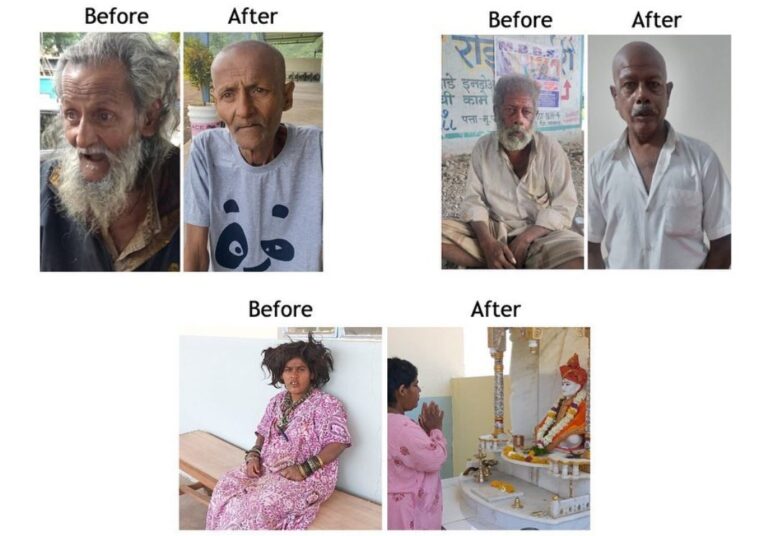
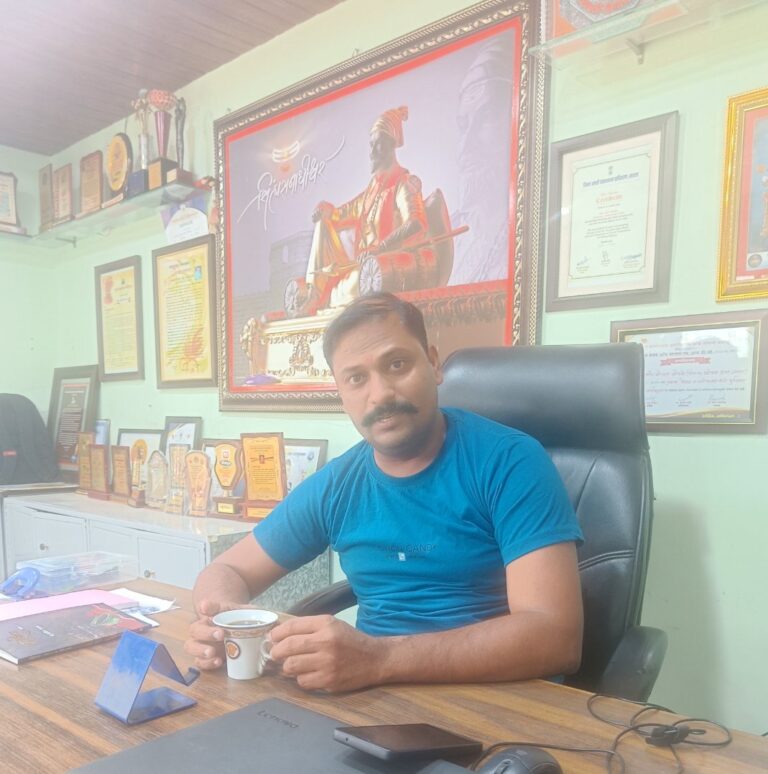
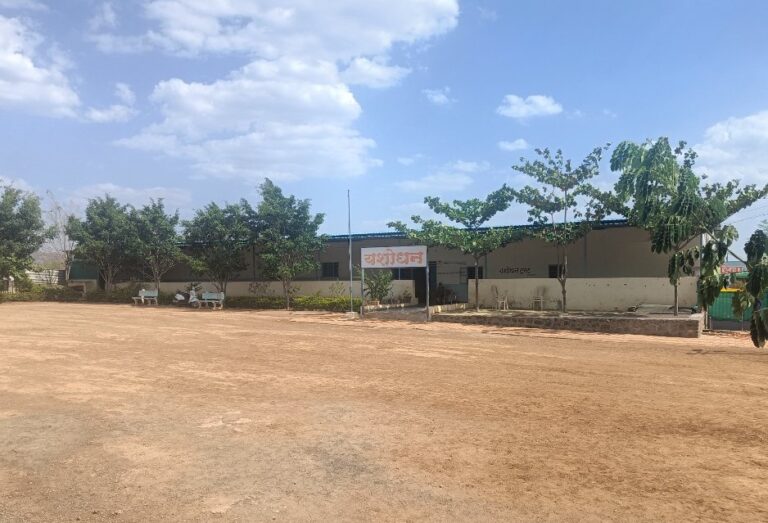
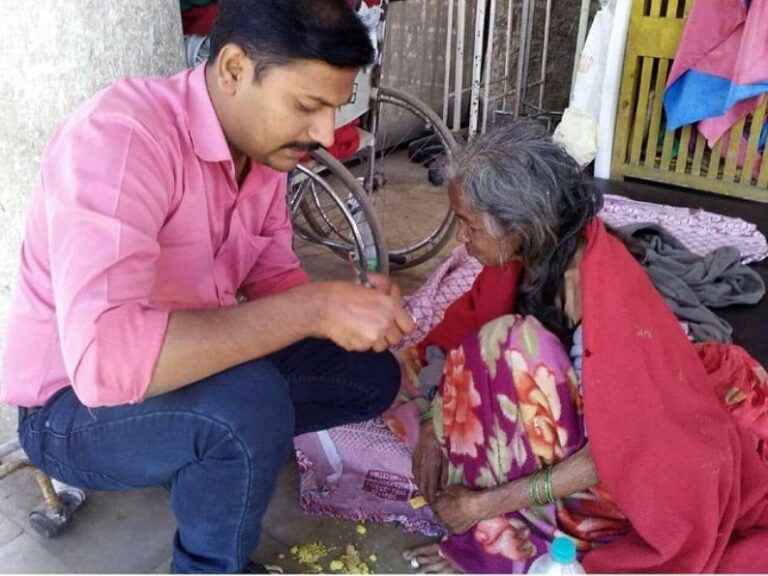
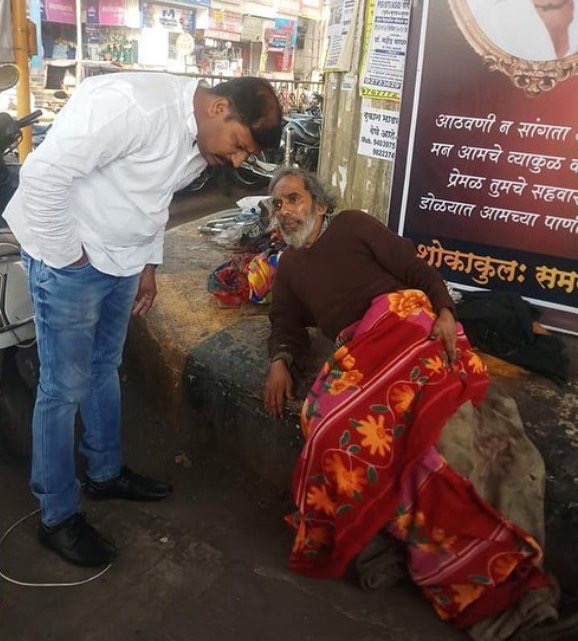
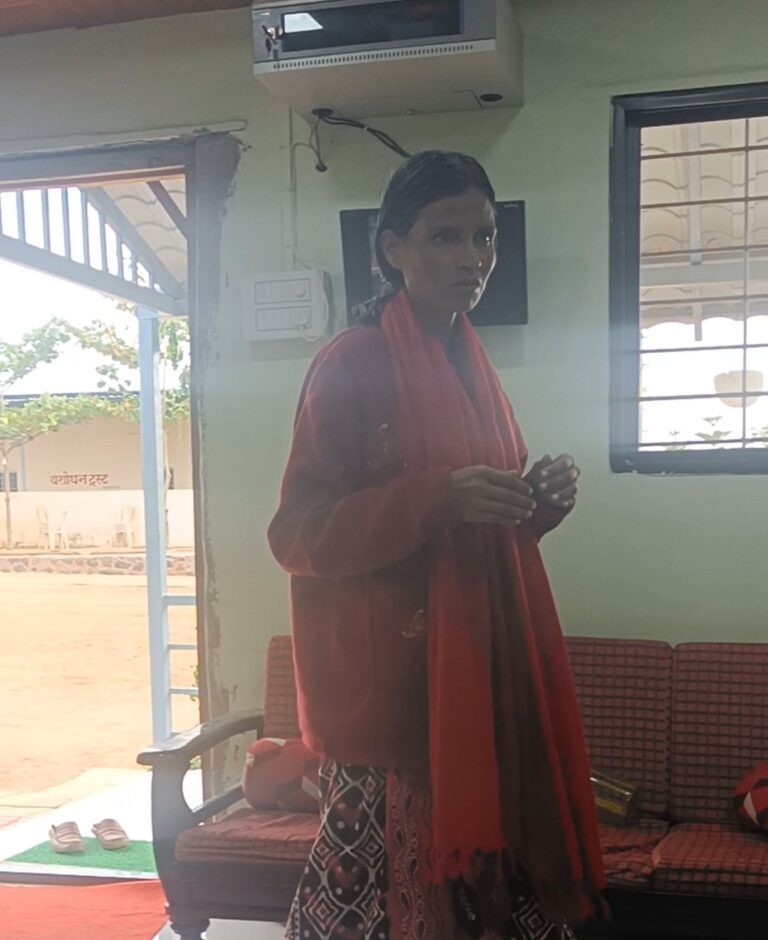
Wonderful individual…speechless not only because of his work, but his stoic mindset